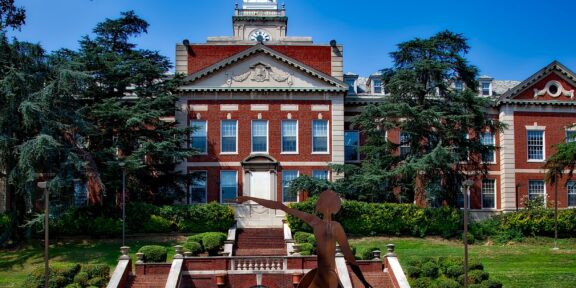For some the idea of college campuses plagued with .9mm Beretta’s and 10mm Glock Handguns, is daunting. However, for organizations like Students for Concealed Carry this concept is not a nightmarish illusion-but a solution to the problem that has left campuses like Virginia Tech forever changed, and constantly on high alert.
Founded in 2007, in the dorm room of then student at The University of North Texas Chris Brown-the Concealed Campus website was born. The organization has grown to over 43,000 members of college students, professors and college employees with over 350 established chapters on college campuses in all 50 states. Students for Concealed Carry is a national non-partisan, grassroots organization composed of individuals who believe that holders of state-issued concealed handgun licenses should be able to carry these weapons for personal protection on college campuses-parallel to the laws that all them to carry handguns virtually everywhere else.
According to the National Conference of State Legislators Overview of Guns on Campus there are currently 49 out of 50 states that permit concealed carry by non-law enforcement officials-with D.C. and Illinois opposing these laws prohibiting concealed carry by non-law enforcement officials. However, of those states that do allow concealed carry 21 ban carrying of concealed weapons on college campuses. 23 states allow the decision to ban or carry weapons on college campuses to be made by the university.
“In states where concealed carry on college campuses is prohibited by law, we work with legislators to change the statutes, said Students for Concealed Carry Eastern Regional Director Erik Soderstrom. “In cases where it is not prohibited by law, we seek to change campus policy at private institutions and we advocate legislation to preempt public campus from passing policy to prohibit the exercise of this right.”
Due to new legislations and court rulings, five states now have provisions allowing concealed weapons to be carried on public postsecondary campuses. These states are: These states are Colorado, Mississippi, Oregon, Utah, and Wisconsin.
“When we looked at crime data for Colorado State University in the years before and after concealed carry became legal on their campus, we saw across the board reductions in crime on campus after concealed carry was introduced,” said Soderstrom.
Most college and university campuses have campus police departments that are responsible for protecting the campus, its students and administrators and the surrounding areas. However, Students for Concealed Carry use Virginia Tech as an example of the damage that can be done while waiting for campus police to arrive on the scene. In a matter of seconds a gunman can take innocent lives, while police are being dispatched.
“Campus police cannot be everywhere at all times and numerous court rulings have established that police have no duty to protect, even if they know a crime is in progress,” said Soderstrom. “Our goal is to allow the same licensed, trained individuals who are already allowed to carry off campus to have the same means of self defense available on campus.”
However Howard University Chief of Police, Lee James feels otherwise.
“The armed officers train on a regular basis to better protect the university community and interface with local law enforcement on the best tactics and strategies to employ in the events on an armed confrontation,” said James. “I do not believe allowing students to carry concealed weapons should be allowed, the increased danger to the university community at large increases exponentially with more weapons on campus.”
While the organization has student chapters around the nation, there are currently no established chapters is D.C. It is evident by its high national membership that there are many college students who advocate for this cause-however, there are some that fear that allowing concealed carry will only make matters worse, and increase the chances for ‘freak accidents.’
“The idea of my peer sitting next to me in class with a weapon on them, does not sit well,” said college student Laurin Compton. “I feel like this would cause accidents, more so than students using the guns to protect themselves from real violence.”
One of the main functions of the organization, Students for Concealed Carry is to dispel the common myths and misconceptions about concealed carry on college campuses by making the public aware of the facts. One of these myths is that concealed carry will increase crime. However, members of the organization argue that before concealed carry was introduced at the state level, the same people argued that there would be shootouts-over parking spaces, and that was not so. Neither are there shoot-outs on the college campuses that do allow concealed carry.
“Our primary concern is legalizing self-defense on college campuses,” said Soderstrom. “When crimes occur on college campuses where the most effective means of self defense is currently prohibited (concealed carry by students), it reaffirms our commitment to our mission. The status quo has failed; it’s time we tried changing it.



